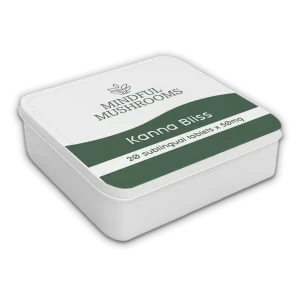Long before laboratories and modern medicine, nature provided remedies that nourished and healed. Among these ancient gifts, mushrooms held a revered place in traditional health systems across cultures. Their unique properties were recognized by some of the world’s oldest civilizations, who instinctively understood the powerful connection between nature and well-being. Today, as we search for more natural ways to support our health, the ancient wisdom surrounding mushrooms feels more relevant than ever.
In ancient China, mushrooms were not merely food; they were symbols of vitality and longevity. Texts from the Han dynasty, dating back more than two thousand years, describe the use of certain mushroom species in supporting the body’s energy and immune resilience. Reishi, often called the “mushroom of immortality,” was so highly prized that it was reserved for emperors and nobility. Its cultivation and use were detailed carefully in traditional Chinese medicine manuals, highlighting its role in balancing the mind and body.
Similarly, in Japan, mushrooms like Maitake and Shiitake were treasured for their fortifying effects. Samurai warriors consumed them to maintain stamina and recover more quickly after battles. These mushrooms were thought to enhance not just physical strength but also mental discipline—qualities essential for the rigorous demands of their way of life.
In the Indigenous cultures of North America, mushrooms were used for various ceremonial and healing purposes. Certain species were employed in teas or poultices, valued for their natural properties to soothe and strengthen the body. Knowledge about the seasons, habitats, and specific uses of mushrooms was passed down through generations, forming an important thread in the broader tapestry of ecological wisdom.
Even in Europe, mushrooms occupied an important role in traditional folk medicine. During the Middle Ages, herbalists and healers frequently used mushrooms alongside roots and herbs to create tonics aimed at supporting vitality through harsh winters or after illnesses. While modern science would later isolate active compounds within these species, early healers relied on careful observation, intuition, and an intimate relationship with nature.
Across these diverse cultures, certain patterns in mushroom use emerged:
- Support for endurance and stamina, particularly in physically demanding roles
- Maintenance of mental clarity and calmness, often used during spiritual or meditative practices
- Reinforcement of resilience during seasonal transitions, illnesses, or times of physical exhaustion
Despite the differences in geography and tradition, a common understanding connected these ancient peoples: mushrooms offered more than nutrition—they offered balance. They were regarded as allies for the entire system, supporting the body’s innate ability to adapt, protect, and restore itself.
Modern research is now validating many of these traditional beliefs. Studies have shown that compounds naturally found in mushrooms—such as beta-glucans, terpenoids, and antioxidants—play significant roles in supporting immune function and cognitive health. What ancient civilizations observed through experience and tradition, science is now beginning to map and explain in detail.
Yet, beyond the biochemical properties, there is something deeply human about the relationship with mushrooms. For centuries, gathering mushrooms was not just a task for sustenance; it was a ritual, a practice of mindfulness and attunement with nature’s cycles. Understanding which mushrooms to gather, when, and how demanded patience, observation, and respect. It fostered a way of living that was more closely synchronized with the rhythms of the earth.
In reconnecting with the ancient wisdom of mushrooms today, we are invited to reclaim not only their physical benefits but also this deeper, slower way of engaging with the natural world. By honoring the traditions that valued mushrooms as more than mere food, we create space for a richer relationship with our own well-being—one rooted in respect, patience, and reverence for nature’s timeless gifts.




